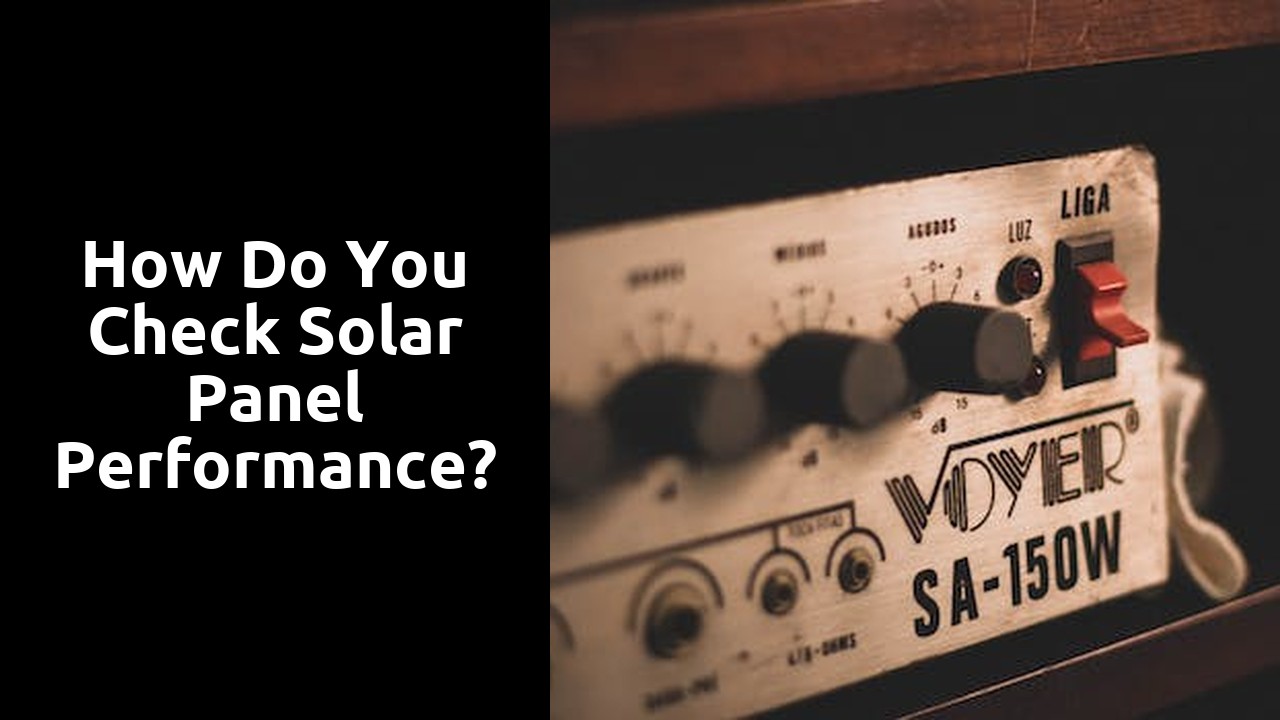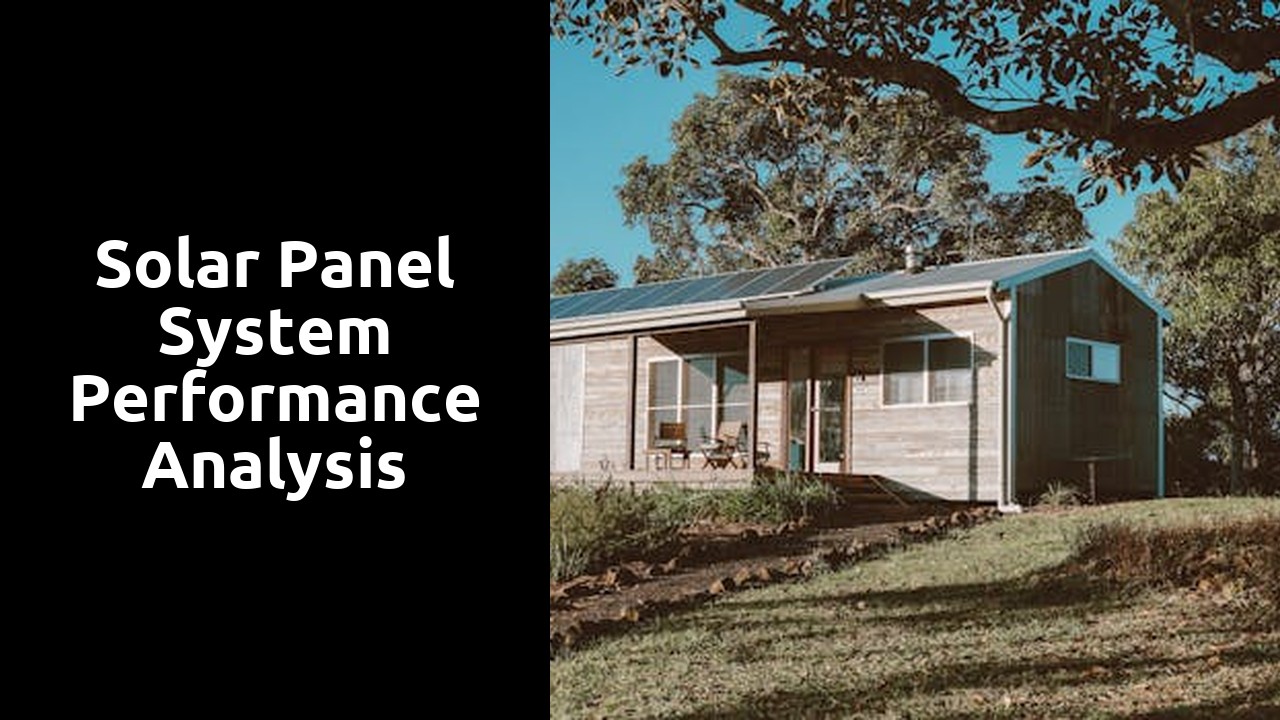
Troubleshooting Solar Panel Issues
To effectively troubleshoot solar panel issues, it is crucial to conduct a thorough Solar Panel System Performance Analysis. This analysis involves examining various aspects of the solar panel system, such as checking the inverter readings, inspecting the physical condition of the panels for any visible damage or debris, and reviewing the historical energy production data to identify any inconsistencies or underperformance. By conducting a comprehensive performance analysis, you can pinpoint the root cause of any problems affecting the solar panel system and take appropriate corrective actions to restore optimal performance.
Additionally, it is essential to consider external factors that may impact the efficiency of solar panels, such as shading from nearby trees or buildings, soiling on the panel surface, or potential wiring issues. By addressing these external factors in conjunction with the findings from the performance analysis, you can effectively troubleshoot and resolve any issues to ensure that your solar panel system operates at its full capacity. Regularly monitoring and evaluating the performance of your solar panels will not only help in troubleshooting current issues but also in identifying potential problems early on to prevent any significant damage or decrease in energy production.
Identifying Common Problems
Identifying Common Problems
When conducting a Solar Panel System Performance Analysis, several common issues may arise. One frequent problem is reduced energy output due to accumulated dirt and dust on the panels. This can significantly impact the efficiency of the solar panels by obstructing the incoming sunlight from reaching the photovoltaic cells. Therefore, regular cleaning and maintenance are essential to ensure optimal performance.
Another common issue is shading, which occurs when objects such as trees, buildings, or other structures cast shadows on the solar panels. This shading can cause certain parts of the panel to receive less sunlight, leading to decreased energy production. To address this problem, strategic placement of solar panels and regular trimming of nearby vegetation may be necessary. By being aware of these common issues, solar panel system owners can take proactive measures to maintain their system's efficiency and prolong its lifespan.
Enhancing Solar Panel Lifespan
To ensure the longevity of your solar panels, regular maintenance is paramount. Performing routine checks on the system will allow you to identify any potential issues early on and address them promptly. This proactive approach not only enhances the performance of your solar panel system but also prolongs its lifespan. By conducting thorough Solar Panel System Performance Analysis, you can monitor the efficiency of your panels and make adjustments accordingly to maximise their output.
Furthermore, implementing preventive measures is vital in preserving the quality of your solar panels. Protecting the panels from external factors such as dust, debris, and inclement weather conditions can significantly impact their overall performance. By investing in protective coatings or cleaning solutions, you can shield the panels from harm and maintain their efficiency over time. Regularly checking for any signs of wear and tear and addressing them immediately will contribute to the longevity of your solar panel system.
Implementing Preventive Measures
Solar Panel System Performance Analysis can be greatly improved by implementing preventive measures. To start, regular maintenance is crucial to ensure that your solar panels are functioning at their optimal level. This includes cleaning the panels regularly to remove any dust or debris that could be blocking sunlight absorption. Additionally, inspecting the panels for any signs of wear and tear, such as cracks or discolouration, can help identify issues before they escalate.
Furthermore, investing in quality monitoring systems can help track the performance of your solar panels over time. By keeping a close eye on data such as energy production levels and any fluctuations in performance, you can quickly detect any issues and address them promptly. By proactively implementing these preventive measures, you can ensure that your solar panel system continues to operate efficiently and effectively for years to come.
Upgrading Solar Panel Technology
Upgrading solar panel technology is essential to ensure optimal Solar Panel System Performance Analysis. Constant advancements in solar technology offer the opportunity to improve efficiency and increase energy production. One way to upgrade solar panels is to incorporate advanced monitoring systems that provide real-time data on panel performance, allowing for timely identification of any issues that may affect the system's output.
Moreover, another upgrade option is to invest in high-quality materials and components that can withstand harsh weather conditions and increase the overall lifespan of the solar panels. By adopting the latest technologies and materials, solar panel owners can significantly enhance the performance and reliability of their system, ultimately maximizing energy output and return on investment.
Exploring New Innovations
Solar panel technology is evolving rapidly, with new innovations constantly being introduced to improve efficiency and performance. One of the latest advancements in this field is the integration of artificial intelligence (AI) into solar panel systems. AI technology allows for more precise monitoring and adjustment of solar panel performance, leading to increased energy production and cost savings for users. By analysing a wealth of data in real-time, AI can optimise the operation of solar panels, ensuring that they are performing at their best at all times.
Another exciting innovation in the realm of solar panel systems is the use of drones for Solar Panel System Performance Analysis. Drones equipped with thermal imaging cameras can quickly scan solar panels from above, identifying any potential issues such as hot spots or shading that may be affecting performance. This technology provides a fast and efficient way to assess the health of a solar panel system, allowing for timely maintenance and maximising energy output. As these new innovations continue to be developed and implemented, the future looks bright for solar energy generation.
FAQS
How can I check the performance of my solar panels?
You can check the performance of your solar panels by monitoring the energy output regularly using a solar power monitoring system or software. ####
What are some common issues that can affect solar panel performance?
Common issues that can affect solar panel performance include shading, soiling, aging of panels, and issues with the inverter. ####
How can I enhance the lifespan of my solar panels?
You can enhance the lifespan of your solar panels by ensuring regular maintenance, keeping the panels clean, and protecting them from extreme weather conditions. ####
What preventive measures can I take to avoid solar panel issues?
To prevent solar panel issues, you should schedule regular inspections, trim any nearby shading trees or objects, and ensure proper installation by qualified professionals. ####
Is it possible to upgrade the technology of my existing solar panels?
Yes, you can upgrade the technology of your existing solar panels by adding more panels, updating the inverter, or integrating energy storage solutions. ####
Are there any new innovations in solar panel technology worth exploring?
Yes, there are new innovations in solar panel technology such as bifacial panels, solar tracking systems, and smart inverters that can enhance energy production and efficiency.
